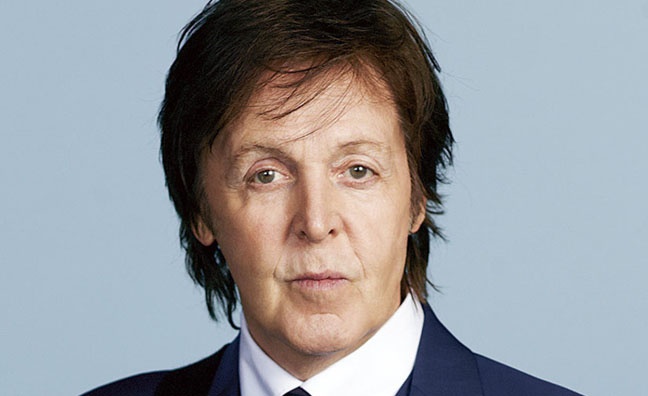Sony/ATV has described Beatles legend Paul McCartney’s lawsuit against it as “unnecessary and premature”, after the star began proceedings to regain the rights to some of the fab four’s biggest songs.
Michael Jackson famously purchased the rights to many Beatles classics in the 1980s, including the likes of Love Me Do, Yesterday, The Long And Winding Road, Hey Jude and Let It Be. He then bought shares in Sony/ATV and, following his death, his estate sold them back for $750m.
Love Me Do is the first song that will be eligible to be claimed back in October 2018. The rest of the catalogue’s time limits will elapse at various dates through to 2026.
McCartney is citing the 1976 Copyright Act, which outlines that rights to music made before 1978 must be returned to the original composers 56 years after the date of the original copyright. In McCartney’s case, 2018 will mark 56 years since he and John Lennon began writing together in 1962.
'Because the earliest of Paul McCartney's terminations will take effect in 2018, a judicial declaration is necessary and appropriate at this time so that Paul McCartney can rely on quiet, unclouded title to his rights,' the suit said.
Now, Sony/ATV has now responded to the lawsuit, outlining its disappointment at McCartney’s decision to take the matter to court.
"Sony/ATV has the highest respect for Sir Paul McCartney with whom we have enjoyed a long and mutually rewarding relationship with respect to the treasured Lennon and McCartney song catalog," a statement from the company read. "We have collaborated closely with both Sir Paul and the late John Lennon's Estate for decades to protect, preserve and promote the catalog's long-term value. We are disappointed that they have filed this lawsuit which we believe is both unnecessary and premature."
While McCartney will be hoping to emerge victorious from the case, he and his legal team will no doubt be aware of the recent lawsuit filed against Sony/ATV by ‘80s pop icons Duran Duran, in which the court ruled in favour of the publishing company.
The band had argued that US copyright laws allowed them to call for a reversion of copyright after 35 years. Lawyers for Gloucester Place Music (part of EMI Music Publishing), however, won out with their case that English laws prohibited them from doing so.
The company argued in court that Duran Duran had breached publishing agreements by serving notices to terminate the grant to the company of US copyrights of their first three albums
Mr Justice Arnold ruled in Gloucester Place's favour.
"Not without hesitation, I have come to the conclusion that the [Gloucester Place] interpretation of the agreements is the correct one," he said on Friday.
"I conclude that [the group members] have acted in breach of the agreements by serving the notices, or, where they have not yet taken effect, will do so if they are not withdrawn."
The legal action had been seen as a test case whose outcome would have implications for many other UK songwriters.
Sony/ATV issued the following statement:
“We are gratified by the court’s decision to interpret this matter in the way we believe is consistent with the intention of the contracts when they were entered into. EMI has nothing but the highest respect and admiration for Duran Duran and their great songs. This has not been about seeking to challenge the U.S. laws on copyright terminations but simply a contractual issue in the jurisdiction of the U.K. courts to clarify the parties’ rights on various songs.”









